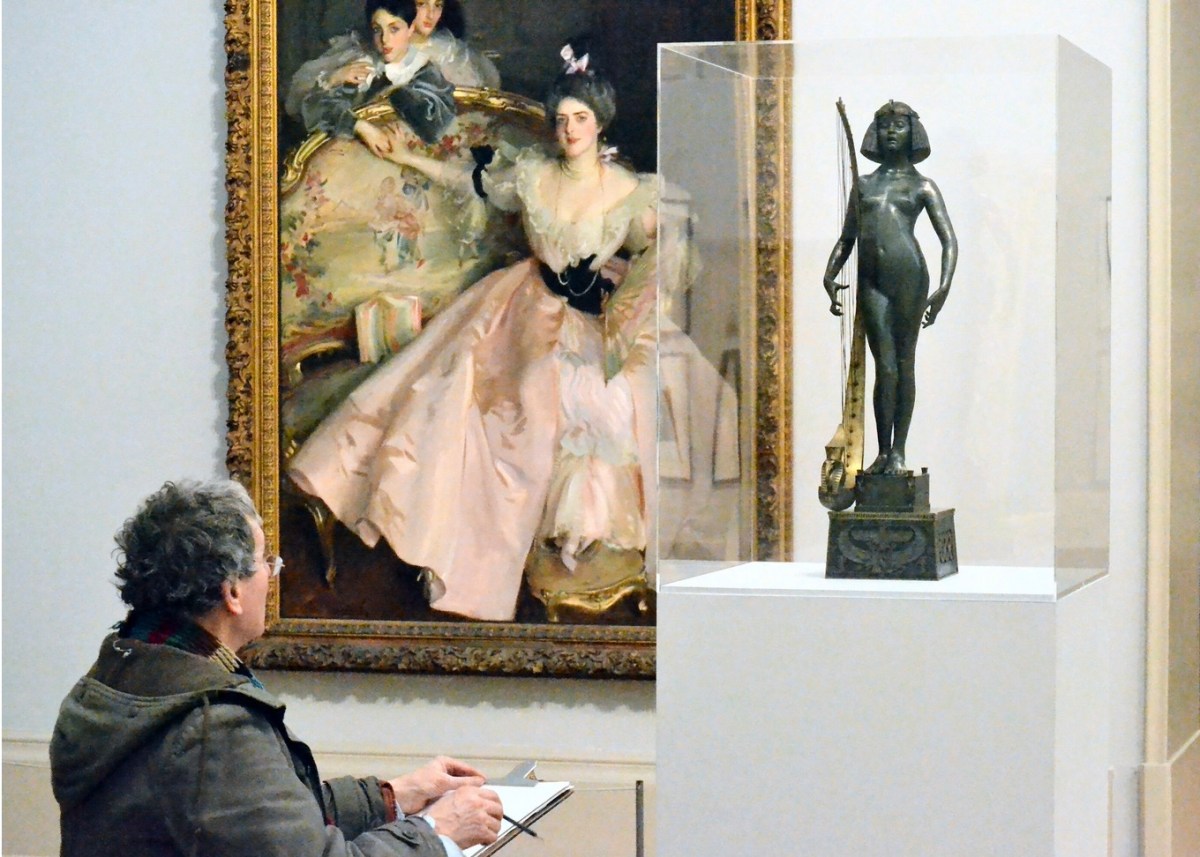Emerging in the UK in the 1960s and ’70s, David Hockney, David Bowie and the members of the Beatles and Queen have become some of the world’s most-known artists. Many of them grew up in working class families, and their success stories are sometimes invoked as proof of a functioning meritocracy. New research, however, finds that there are half as many creatives from working class backgrounds in the UK now (about 8%) than there were during the supposed “golden age of mobility” in the decades following World War II.
The findings, published last month in the journal of the British Sociological Foundation, may be cause for alarm, but the research also debunks the myth of a “golden age” altogether. The relative chance of a working class person entering a creative field has not changed. Rather, there are fewer working class people in the UK as a whole, and the chances of attaining a career as an artist, writer or actor have stayed the same: not so great.
‘Overall, people from the higher middle classes are four times more likely to be in a creative job than people from the working class, and this hasn’t changed over 40 years,’ Andrew Miles of the University of Manchester, lead author of the paper, told Hyperallergic.
Creative industries have always been largely inaccessible to people from lower-income backgrounds, and it’s no secret that being wealthy increases your odds of going into an artistic field. Factors such as industry-wide low wages and barriers to educational access perpetuate inequality.
‘We do think it’s worth stressing that for all the talk of “golden ages”, the 1960s, ’70s and ’80s were probably less of a golden age if you were a working class woman, or a working class person of colour,’ says Dave O’Brien, a University of Sheffield professor and one of the study’s co-authors. ‘Class and social mobility really need to be seen through an intersectional lens.’
O’Brien points to the cultural sector as a reflection of social inequalities facing all of British society, which he says are ‘clearly getting worse’. Income inequality in the UK, as in the US, is growing, affecting its middle class.
O’Brien explains the shift in the size of the working class population as a ‘massive change in British society’ caused by a decline in the number of manual labourers in the country as a whole. But even if the odds of securing a creative role have remained the same along socioeconomic lines, stagnation is cause for alarm because the result is that fewer of their working class voices are being heard.
The researchers used the Office for National Statistics Longitudinal Study, which links census information from 1971 through to 2011 for a 1% sample of the population of England and Wales. This data allowed the researchers to examine parents’ occupations and social class without relying on the sometimes unreliable accounts of their children, but it provided a sample size too small to differentiate between different creative sectors jobs.
The team studied people born between 1953 and 1992, a group that came of age beginning in the 1960s (Baby Boomers and Generation X) through to the early 2010s (Millennials).
Read: Why is there no minimum wage for a visual artist?
While Boomers are sometimes criticised as out of touch, their insistence on a late 1960s and 1970s ‘golden age’ appears to have at least some merit. Although the decade saw cultural revolutions both in the US and the UK, it also provided long-gone opportunities for socioeconomic advancement.
‘I think there is some mileage in the argument that older generations sometimes look back upon the past fondly,’ Miles tells Hyperallergic. ‘There are, however, good sociological reasons for people remembering the 1960s and early ’70s with favour, despite the many strains in this period.’ Miles says that chances for upward mobility were increasing alongside expanding educational opportunities.
O’Brien adds that things such as the UK’s welfare state and social support for necessities, including housing, are ‘much, much worse’ now than when the older generations of creatives were coming of age. ‘They are right to remember a time when they accessed much more support.’
This story was first published by Hyperallergic in December 2022. It has been edited to suit ArtsHub style guidelines.




